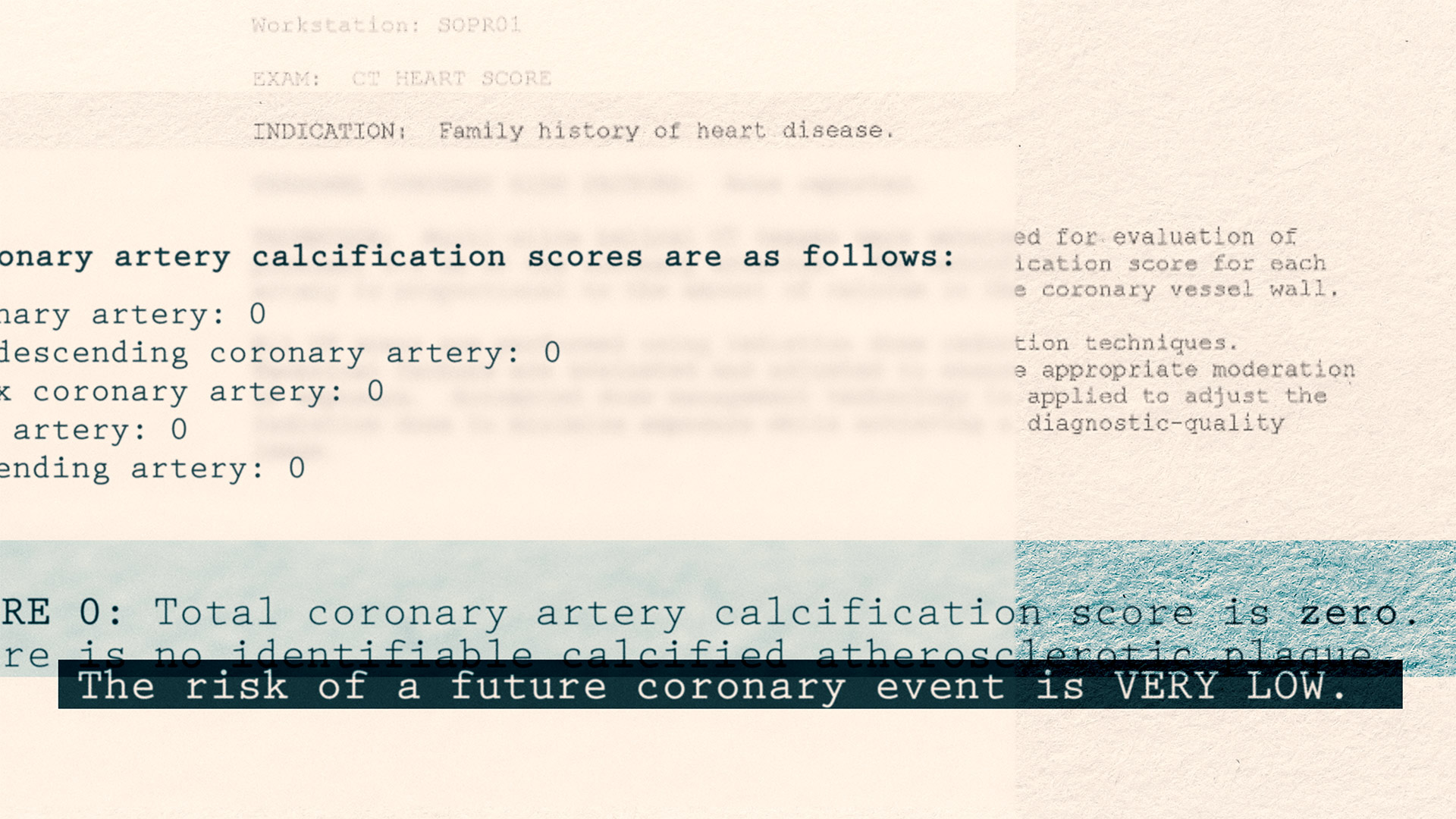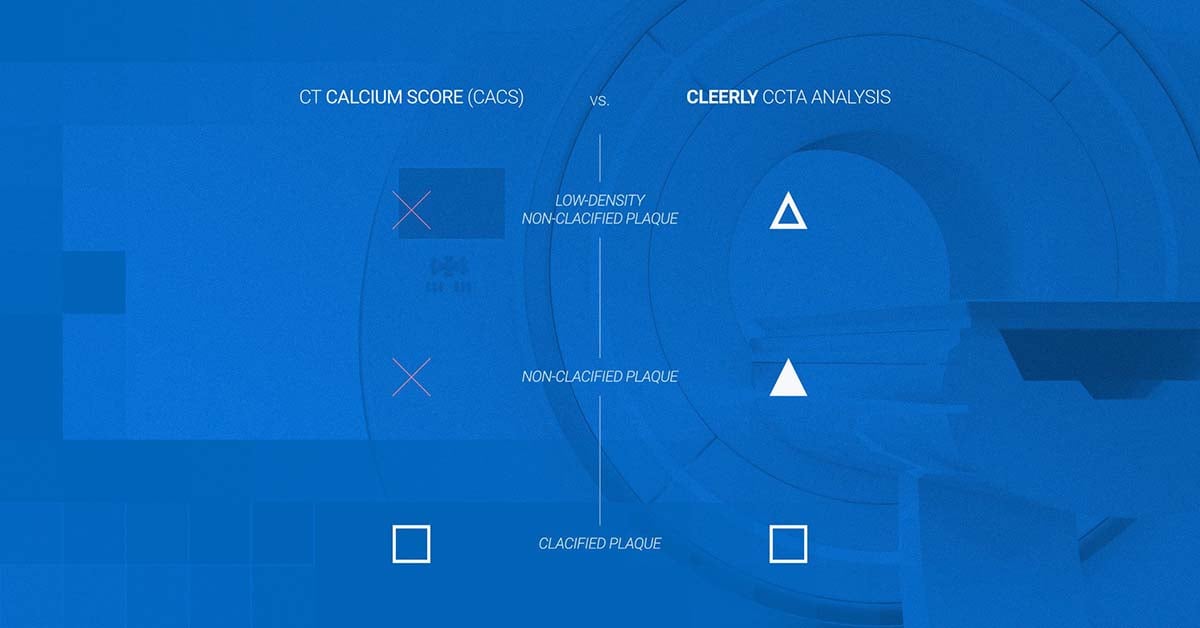The Recipe to a Healthy Heart:Your Guide to Preventing Heart Disease
Sure, the taste of food is important, but do you know how your diet impacts your heart? Many foods contain hidden ingredients that negatively impact...
3 min read
 Cleerly
:
May 23, 2023
Cleerly
:
May 23, 2023

"It's very scary because I had a lot of patients and even friends and neighbors that had heart attacks, and we thought they were healthy by eating right and exercising. But all of a sudden they had a heart attack. That could be me."
Sharon Bruno, 47, is a registered nurse in Florida and vice president of partnerships at a provider of self-insured health plans, who was worried about her heart health due to her family history.
My dad had high blood pressure and high cholesterol, and unfortunately died when he was 55 from a massive stroke. Knowing my family history, I wanted to be checked to make sure I’m okay.
Before deciding she needed to be proactive about her heart health, Bruno had not exhibited any symptoms of heart disease. Bruno first decided to get a calcium score test (CAC), which uses a computerized tomography (CT) scan to detect calcium deposits in the coronary arteries. This is a commonly used test to measure coronary artery disease risk in individuals with moderate or unknown levels of atherosclerosis (arterial plaque build-up).
A higher coronary calcium score suggests a higher chance of significant narrowing in the coronary arteries and a higher risk of future heart attack1. Bruno’s CAC tests showed a score of zero, which means the test found no calcium in her heart. She assumed this meant that her heart was healthy, and plaque-free.

Then, through a partnership with Fountain Life, Bruno was eligible to get a Cleerly analysis. Similar to a CAC, Cleerly uses a coronary computed tomography (CT) scan to measure a person’s risk for heart attack. Unlike the CAC, a Cleerly analysis shows, with high accuracy, the amount and type of plaque build-up in the coronary arteries. Measurement of coronary artery disease (CAD) burden and plaque type has demonstrated to be the strongest predicting factor for major adverse cardiac events, including heart attacks2.
Bruno’s Cleerly results revealed a much different state of disease than her CAC. Her analysis indicated she had moderate plaque, in which moderately intensive medical therapy is recommended to address disease burden. What this means is that her risk of heart attack was in fact not zero, but was moderate, and could grow over time without treatment.
"I didn’t know what was happening until Cleerly was able to give me information that I did have plaque developing."
Unlike Bruno’s calcium score test, her Cleerly analysis revealed she had moderate atherosclerotic plaque burden with 348.1 mm3 total plaque, 5 mm3 low-density non-calcified plaque, 211 mm3 non-calcified, 123.1 mm3 calcified plaque, and minimal stenosis3. Based on the newly proposed four-stage system for measuring the progression of cardiovascular disease based on atherosclerotic plaque, Bruno had stage 2 moderate plaque. Stages are defined as normal (no plaque), mild, moderate, and severe plaque.
After receiving her Cleerly analysis, her providers reviewed her family and medical history. While Bruno’s blood work and total cholesterol were normal, they determined her plaque was influenced by a combination of her family history, lifestyle, and a prior surgery that impacted her hormones.

Seeing the plaquing of the arteries of my heart, it gave me the motivation to do more. So I had to change my lifestyle. I literally exercise everyday and try to eat healthier. I don’t want to end up like my father. If I want to be healthy, I have to make changes.
After 15 months of adhering to lifestyle changes, a follow-up Cleerly analysis showed Bruno was able to reduce her total plaque from 348 to 254 mm3. She eliminated her low-density non-calcified plaque, reduced her non-calcified plaque from 211 to 159.8 mm3 and percent atheroma volume from 12.5% to 7.5% with minimal stenosis.
“I was so happy to hear that. It gave me the confirmation that I was doing really good and was able to get rid of my high-risk plaque. It’s absolutely amazing.”
Bruno will have another Cleerly analysis performed this year to track her progress and assess the efficacy of her treatment regimen.
With Cleerly, you get a baseline of your heart health and get to see what’s really happening with your heart without the need for an invasive procedure with risk of bleeding or perforation. You don’t know what’s going on until you get the CCTA Cleerly test done. Everyone needs to have this test. It’s life changing and absolutely amazing.
![]()
Want to learn more about Cleerly?
CONNECT WITH US
References:
1. Calcium-Score Screening Heart Scan.⇱ Cleveland Clinic. Last reviewed May 26, 2021.
2.Low-Attenuation Noncalcified Plaque on Coronary Computed Tomography Angiography Predicts Myocardial Infarction⇱ Journal of the American Heart Association. Released March 16, 2020.
3.Coronary CTA plaque volume severity stages according to invasive coronary angiography and FFR.⇱ Journal of Cardiovascular Computed Tomography. Published March 28, 2022.

Sure, the taste of food is important, but do you know how your diet impacts your heart? Many foods contain hidden ingredients that negatively impact...

As we reach the end of 2023 and yet another remarkable year at Cleerly, it’s a great opportunity to reflect on all we’ve accomplished and begin...

Cleerly has had a busy few months – attending conferences, panel sessions, and winning awards as we all work together to achieve our mission of a...

Heart plaques, which are the build-up of substances like cholesterol and fat in the heart’s arteries, can increase your risk of heart attack. A...

Both coronary artery calcium score (CACS) and Cleerly evaluate heart disease risk using cardiac imaging. Learn about the key differences between the...

Half of patients who have a heart attack don't show symptoms prior to their event. A new standard of precision care, emphasizing comprehensive...